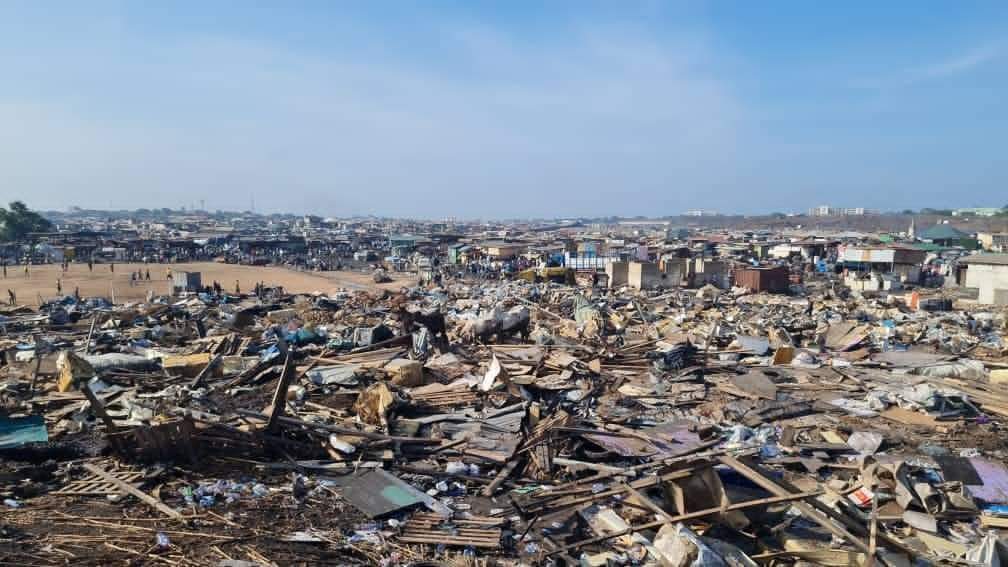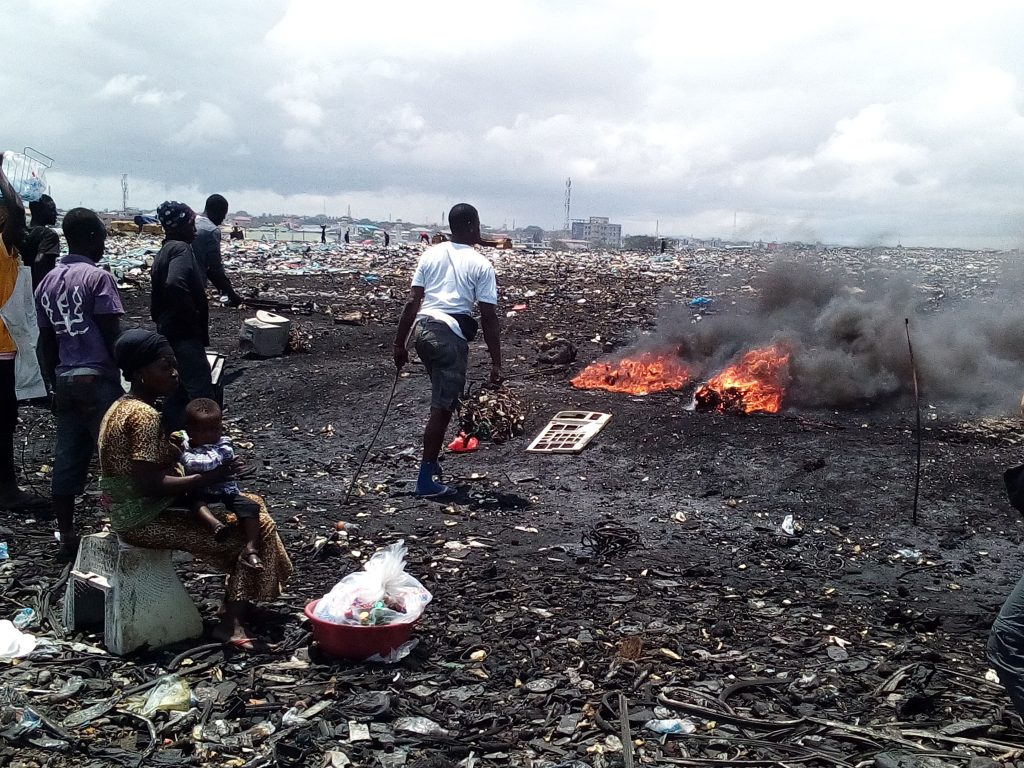The Agbogbloshie dumpsite in Accra, Ghana, is notorious for its high levels of toxic pollution, which can be seen in thick plumes of smoke rising from the site. The air quality is so poor that it becomes increasingly difficult to breathe as you approach the site, with blurred vision from the fumes.
The workers at the dump, mostly men, burn electrical and electronic waste (e-waste) to extract valuable metals like copper and gold. This hazardous work involves burning cables, TVs, computers, and washing machine parts. Despite the toxic environment, many workers continue their jobs because they rely on it for survival.
Workers like Abdulla Yakubu endure the harmful effects of their labor, with symptoms such as red, watery eyes and respiratory issues due to the polluted air. The health risks are compounded by the burning of e-waste, which releases harmful chemicals and particulates, particularly from the plastic components.
Abiba Alhassan, a mother of four, sorts through used plastic bottles near the burning areas and experiences similar health problems, including chest tightness and difficulty breathing. These dangerous conditions are a direct result of e-waste, which is the fastest-growing waste stream globally.
The rise in e-waste is largely due to the growing demand for electronic devices, such as smartphones, computers, and vehicles with embedded electronics. The UN reports that global e-waste production reached 62 million tonnes in 2022, an 82% increase since 2010.
Despite the increased production, only a small fraction of e-waste is recycled, with only 15% of it processed properly. This has led to a surge in the trafficking of e-waste from wealthy countries to poorer ones, where it is disposed of in informal and dangerous ways. Ghana is one of the main destinations for this illegally dumped waste.

E-waste is difficult to recycle because it contains a mix of hazardous materials, including metals, plastics, and toxic chemicals. As a result, unscrupulous companies have been seeking to offload their waste to countries with limited recycling infrastructure.
The World Customs Organization has found that e-waste is now the most frequently seized type of waste globally. Traffickers use sophisticated methods to disguise e-waste, such as mis-declaring shipments or grinding the waste down and mixing it with other plastics to evade detection at ports.
In response to this growing problem, some countries are cracking down on e-waste trafficking. The UK and Italy, for instance, have increased efforts to detect and seize illegal shipments of e-waste. However, traffickers are adapting by using new smuggling tactics, such as turning off GPS beacons on ships to avoid detection and illegally dumping waste at sea.
Despite these efforts, experts believe the scale of the problem is far greater than what is reported, with significant amounts of e-waste still being trafficked to countries like Ghana, which has limited resources to combat this issue.
The health and environmental impact of e-waste is severe. The World Health Organization has reported that burning or dumping e-waste releases toxic chemicals into the air and water, which harm both human health and the environment.
The informal recycling of e-waste, often done by untrained workers, exposes people to hazardous substances like lead, which can cause neurodevelopmental disorders, especially in women and children. The Basel Convention, a global waste treaty, will require exporters to obtain permission from recipient countries for e-waste shipments starting in 2025, but some major e-waste exporting countries, like the US, have not ratified the treaty. This leaves loopholes that continue to allow e-waste trafficking to thrive.

